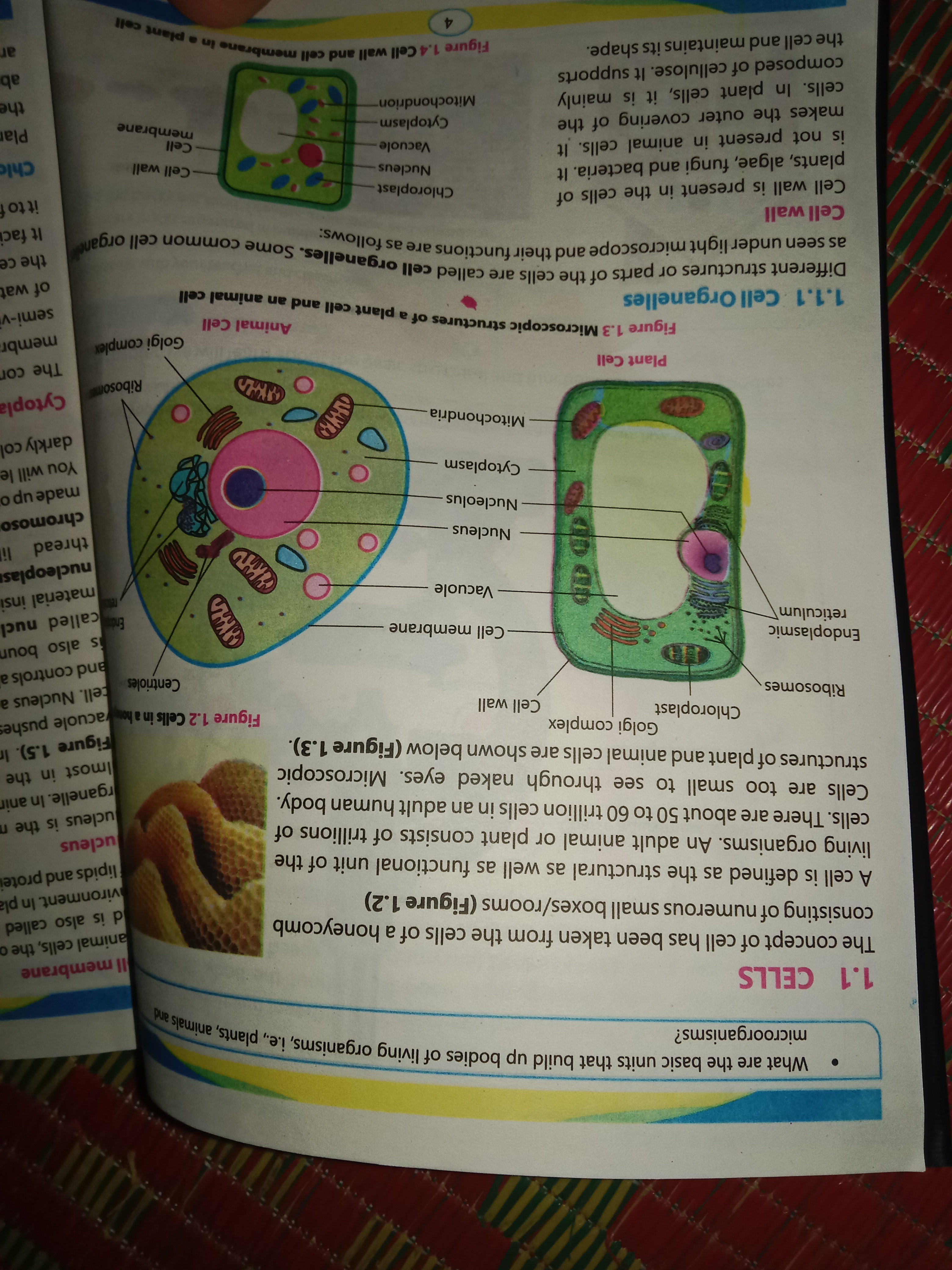What are the basic units that make up the bodies of living organisms, i.e., plants and animals?

Understand the Problem
The question is asking about the differences between plant and animal cells, particularly in terms of their structure and organelles. This involves identifying specific components, such as the cell wall, chloroplasts, and other features unique to each cell type.
Answer
Cells.
The basic units that make up the bodies of living organisms, including plants and animals, are cells.
Answer for screen readers
The basic units that make up the bodies of living organisms, including plants and animals, are cells.
More Information
Cells are the smallest unit of life and serve as the building blocks for all organisms. They perform essential functions necessary for the survival and reproduction of living beings.
Tips
A common mistake is confusing cells with larger structures like tissues and organs. Remember, cells are the smallest unit that can perform all life processes.
Sources
- 3.2: The Basic Structural and Functional Unit of Life- The Cell - med.libretexts.org
- 1.1 Cell structure | Cells as the basic units of life - Siyavula - siyavula.com
- How plants and animals are organised - Living organisms - BBC - bbc.co.uk
AI-generated content may contain errors. Please verify critical information